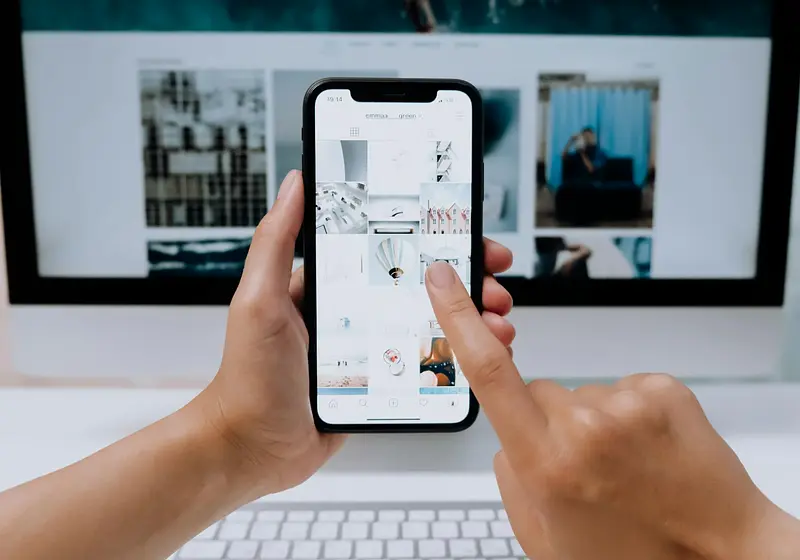With the rise of social media consumption, especially among teenagers, the content on social media has also diversified. While this can be great for raising awareness, discussing taboo topics, and connecting with like-minded people, it also presents several challenges. In an age where anyone and everyone can become an influencer, misinformation has plagued the Internet and has influenced the mental health crisis in the world in both good and bad ways. This article will discuss some pros and cons of mental health discourse on social media.
Let us slide into your dms 🥰
Get notified of top trending articles like this one every week! (we won't spam you)Pros of Online Mental Health Awareness
Since teens can access various resources thanks to the Internet, social media can be a good thing in many ways.
Community Building

Photo by Kelly Sikkema on Unsplash
Many influencers that aim to encourage mental health conversations online can provide communities for people to feel something extremely important, especially at an isolating time during and after the COVID-19 pandemic: you are not alone. With so many public platforms openly talking about mental health issues, social media contributes to teens finding others who go through the same thing and can give them a sense of hope that their experiences are shared and do get better.
They're also able to connect with people who have overcome or are working towards overcoming specific mental health problems, which can provide teens with comfort that things can improve for them, too.
Verified Information
Certain influencers with professional degrees use their knowledge to provide verified and reliable mental health resources and information. Practicing psychologists can spread awareness regarding mental well-being through their platforms by providing credible information and a safe space for their audiences. An example is @awkwardgoat13 on Instagram, an Indian influencer and psychologist who not only makes posts and reels that are easy to understand and accessible but also owns @thefriendlycouch, a network of mental health professionals providing access to therapy.
Internet personalities like this may not be able to directly assist every teen in their audience, but they can give them helpful resources to seek help in the right direction. It can help them understand what they might be going through since the confusion can be extremely frustrating, and then take safe steps accordingly.
Reduce Stigma

Photo by Emily Underworld on Unsplash
Candid mental health conversations on the Internet, whether it's celebrities coming out about their personal struggles or like-minded people connecting on online forums, have helped in reducing the stigma when it comes to mental health and educating a lot of people on the importance of talking about it. While stigma persists in many households, social media has brought the topic up more and more, encouraging teens to speak with their families or trusted guardians and ask for help.
This is highly crucial since many school syllabuses don't cover mental health as a viable topic that needs discussion. While social media cannot replace traditional education, it can push to bring about change.

Take the Quiz: What is your IQ level?
Find out how smart you are by taking this quiz!
Cons of Online Mental Health Awareness
While social media has been instrumental in driving mental health discourse, it comes with some dangerous drawbacks.
Trolls and Bullies
People on the Internet can hide behind an anonymous name and face and bully others on the Internet. Access to vulnerable people is extremely easy for them, so you should always take precautions and control your social media usage. In this way, social media can actually contribute to a decline in your mental health, which can be extremely harmful.
When people open up about their mental health on the Internet, positivity is tainted by negative comments that shame that person. This can take a toll on their emotional wellness and influence people reading their comments, discouraging them from opening up about how they may feel and leading to them not getting the help they need.
Misinformation

Photo by Elisa Ventur on Unsplash
Social media allows people to upload unverified information without anyone checking it. They can spread "facts" that aren't true, which can cause a significant decline in the mental health of users on these platforms. Influencers with a large following can especially spread harmful information in the name of marketing and can influence their audiences in the wrong direction. Always make sure you take mental health advice from a proven professional and remember that what works for someone else on the Internet may not be the right thing for you.
Self-Diagnosis
Many people may take to social media to self-diagnose. For example, if you see a reel that outlines some symptoms of ADHD, it does not mean that you have ADHD, and giving yourself this label without speaking to a professional is harmful. Many influencers may also convince members of their audience that they have a certain mental illness only to sell them a "solution." The wrong diagnosis can lead to more problems and cause deeper-rooted mental health issues.
Misuse of Information

Photo by Icons8 Team on Unsplash
People on the Internet can take information that you might share about your mental health and misuse it for their benefit. They can manipulate you into believing certain things that are not true. Many people can also reflect signs of mental illness through social media just to gain sympathy and possibly raise money for themselves without having the actual illness, which is highly exploitative, invalidates people who have actual illnesses, and takes away attention and resources from them.
Social media can often glamorize mental health conditions and romanticize them. Influencers may make having a mental health condition look like something without any negative consequences in their lives, which can lead many people to believe that having a mental illness is not that hard, which once again invalidates the struggles of people facing issues in their lives. There is a line between raising awareness about mental health and glorifying it. Make sure you follow people who are not lying about something serious and important and show you all sides of the story.
Conclusion
Social media can be a great tool in terms of having access to mental health information, especially for people who are not able to get a diagnosis. It can help make people feel like they are not alone, raise awareness to normalize having discussions about mental health, and reduce the negativity that comes with it. However, don't entirely rely on social media for your emotional well-being.
The negative consequences are hazardous. While you should not self-diagnose based on what you see online, it can help you get an idea of what you might be struggling with, and seeing others going through something similar can give you a sense of hope. Regardless of what information you get on social media, make sure you get it from a trusted source and don't believe everything you are exposed to through the Internet.














